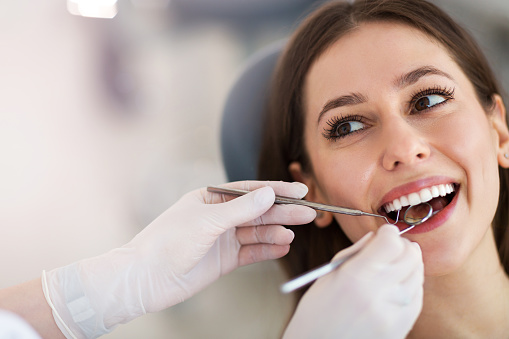Brushing your teeth twice a day is essential for good oral care and prevention dentistry. Regular and proper brushing helps to remove plaque and bacteria from your teeth, which can help to prevent cavities, gum disease, and other oral health problems. To ensure you’re getting the most out of your brushing routine, here’s a step-by-step…
Blog
Managing the Blood from an Oral Injury

Accidents happen, and sometimes those accidents can involve our mouths. Whether you’ve bitten your tongue, bumped your gums with a toothbrush, or experienced a more serious injury, knowing how to manage the bleeding is crucial. First Aid for Oral Injuries Here are some steps you can take to manage bleeding from an oral injury: Apply…
Talking to Your Dentist About Having a Filling Replaced

Dental fillings are a common way to repair cavities and protect teeth. They are made of various materials, including gold, silver amalgam, composite resin, and ceramic. While fillings can last for many years, they may eventually need to be replaced. This can happen for several reasons, such as wear and tear, recurrent decay, or a…
How Being Outside Improves Your Oral Health

Spending time outdoors is good for your whole body, and that includes your oral health. While you might not think about it, there are several ways that being outside can benefit your mouth and teeth. Sunlight and Vitamin D Vitamin D is essential for overall health, including oral health. It helps your body absorb calcium,…
What Type of Benefits Can You Expect from Glass Fillings?

When it comes to taking care of your oral health, there are a variety of options available to restore and maintain healthy teeth. If you’re dealing with a cavity or another dental issue requiring a filling, you may be wondering what type of material would work best for you. While amalgam fillings have been the…
Diabetes and Oral Health – What You Need to Know

As an expert general dentist and member of the American Dental Association, I’m passionate about educating patients on the importance of oral health, especially for those living with diabetes. Understanding the connection between diabetes and oral health is crucial for maintaining overall well-being. Uncontrolled diabetes can weaken your body’s defenses, making you more susceptible…
Dental Implant FAQ Edmonds WA

Dental implants are advanced tooth replacement solutions designed to mimic the structure and function of natural teeth. They consist of three primary components: Titanium Post – Surgically inserted into the jawbone, acting as an artificial tooth root. Abutment – Connects the titanium post to the dental crown. Crown – The visible part of the…
Which Leafy Greens Are Best for Improving Your Oral Health?

We all know that eating leafy greens is good for us. They’re packed with vitamins, minerals, and antioxidants that can help protect our bodies from disease. But did you know that leafy greens can also improve your oral health? That’s right! Eating the right leafy greens can help you prevent cavities, gum disease, and other…
When Should You Consider Deep Dental Cleaning?

Keeping your teeth clean is essential for maintaining a healthy smile. But sometimes, brushing and flossing just aren’t enough to remove all the plaque and tartar that builds up on your teeth. This can lead to gum disease, which can cause several problems, including bad breath, red and swollen gums, and even tooth loss. If…
What’s with the White Spots on Your Teeth?

Have you noticed white patches or spots on your teeth? You’re not alone. Many people experience these blemishes, and while they might not cause pain, they can be a cosmetic concern. But what exactly are these white spots, and what causes them? Understanding White Spots These white spots are called hypocalcifications. They’re areas where the…
